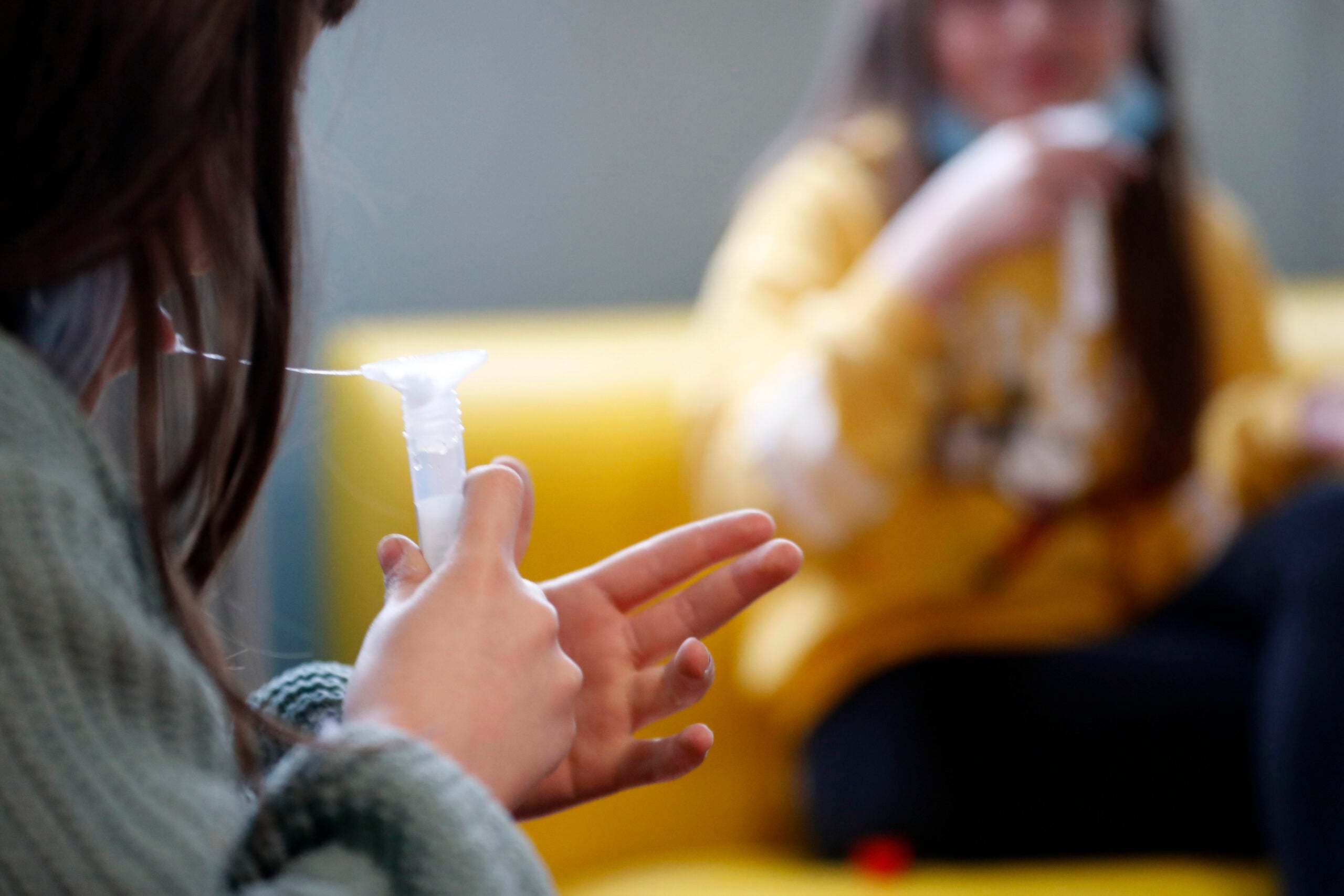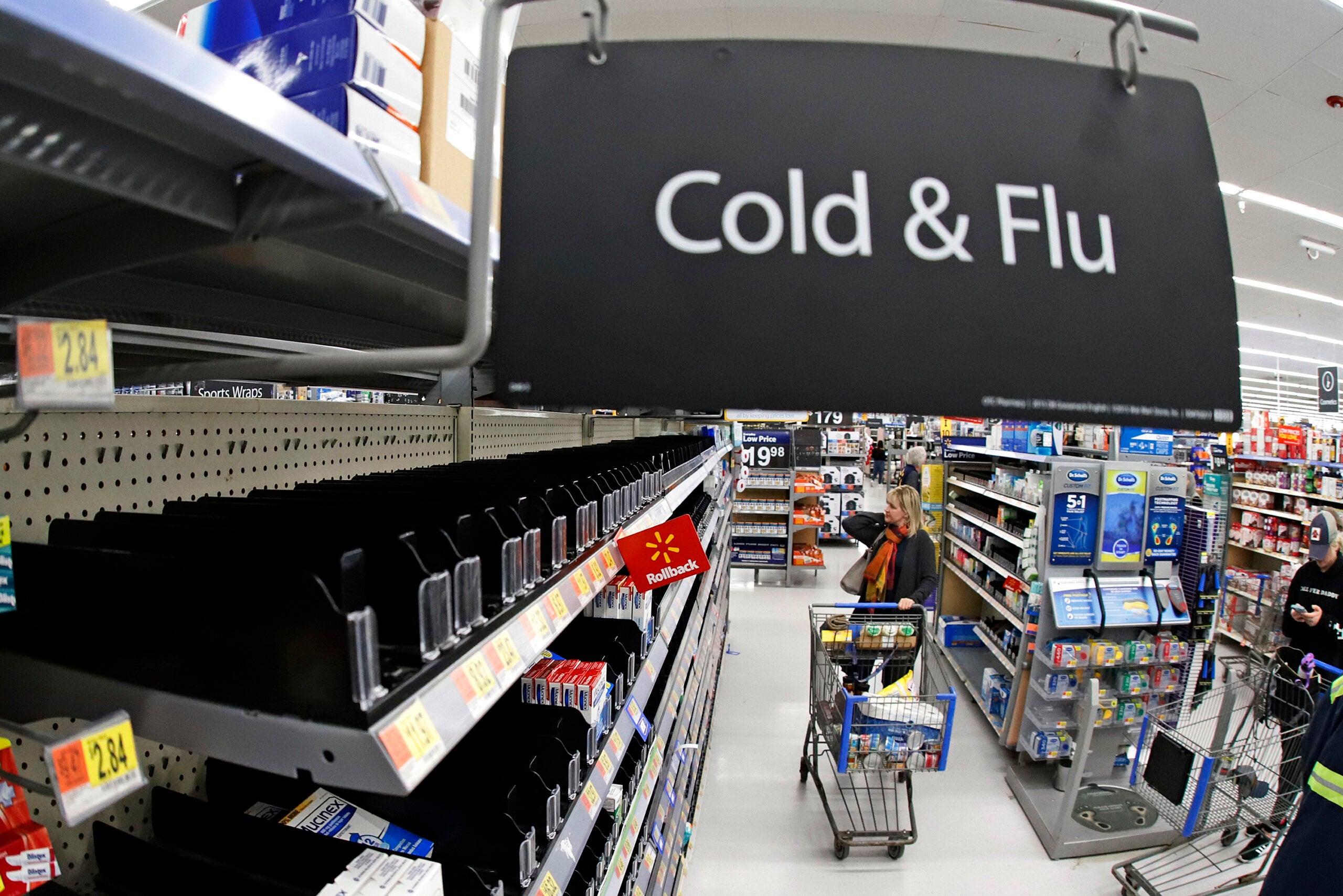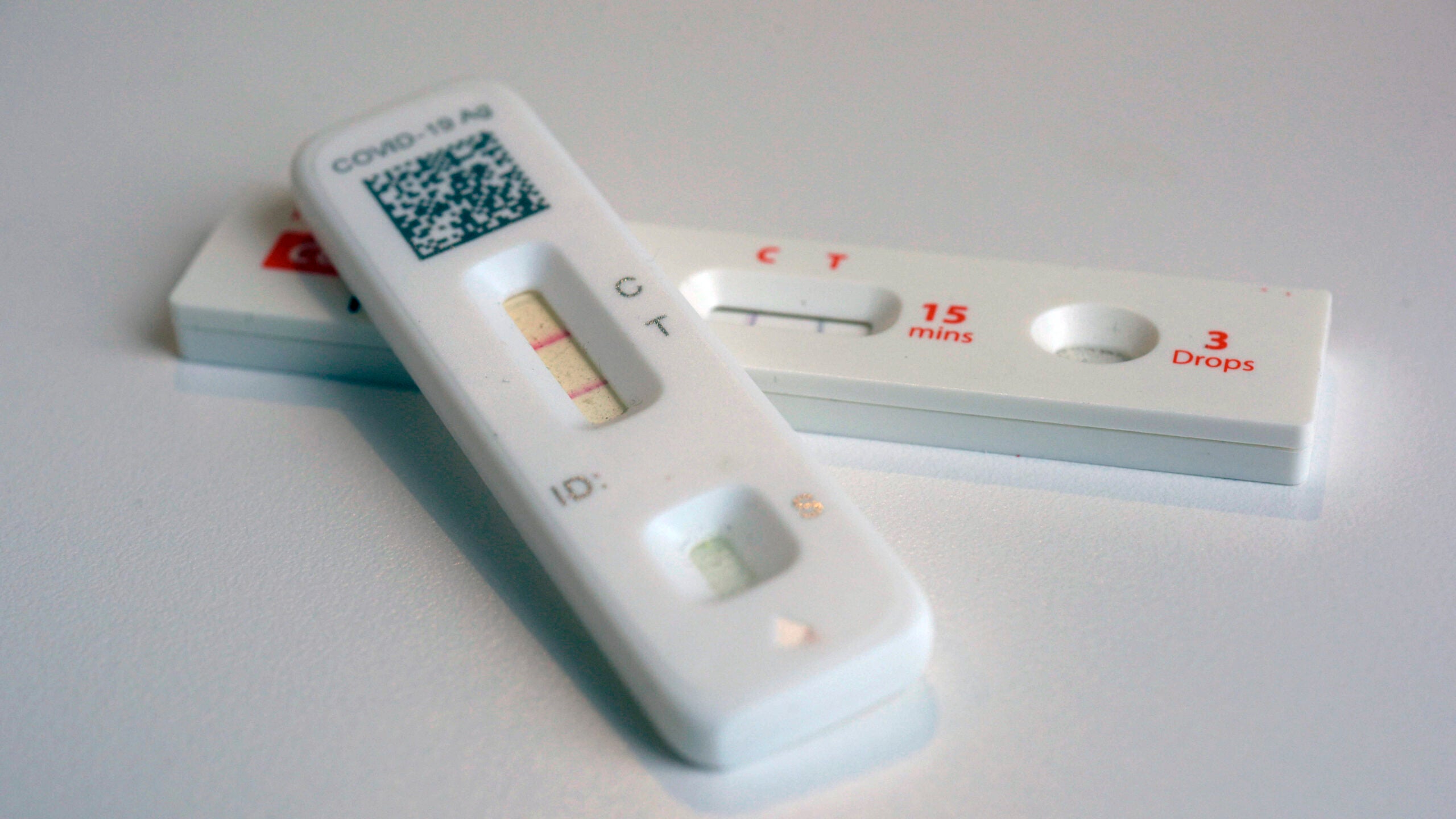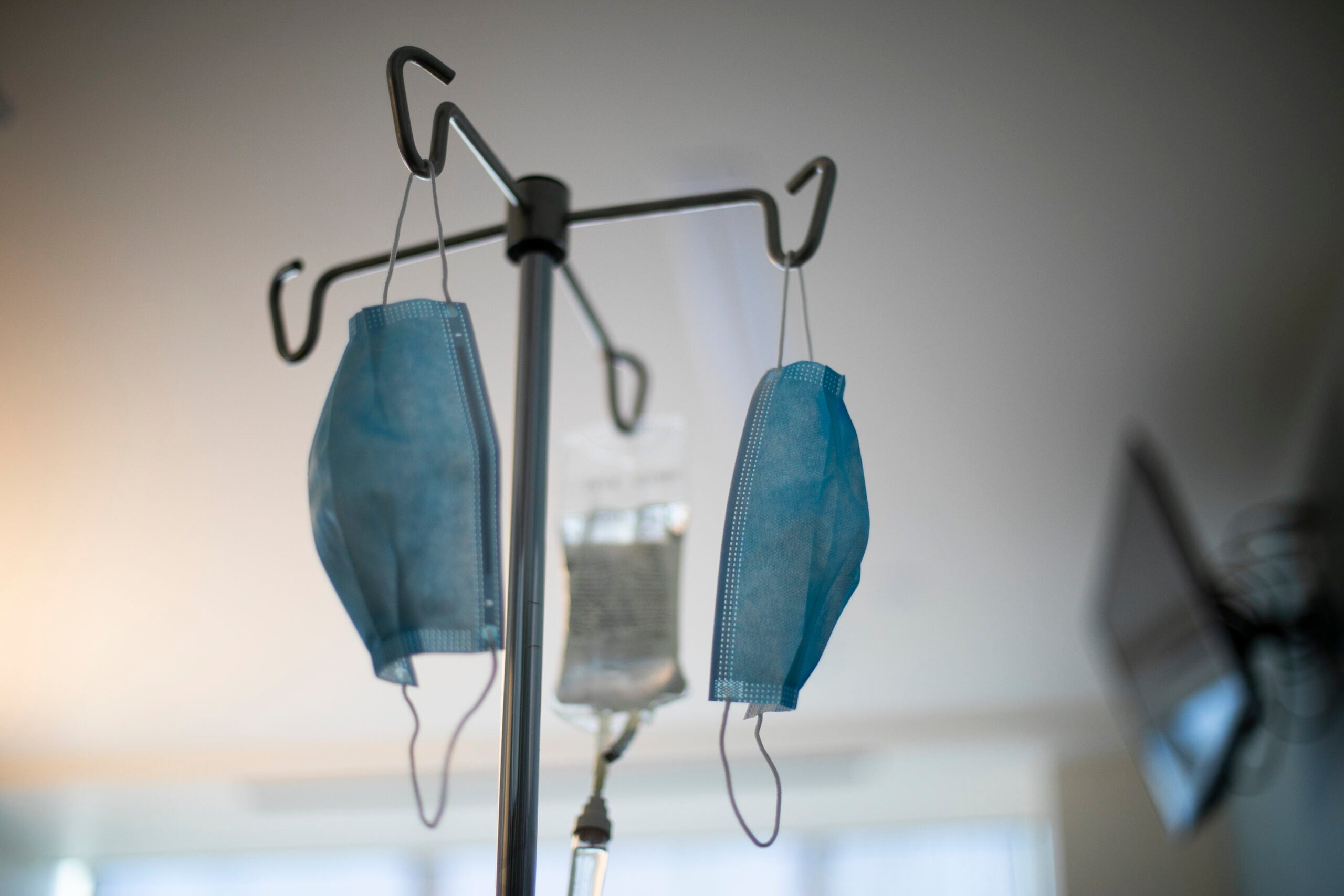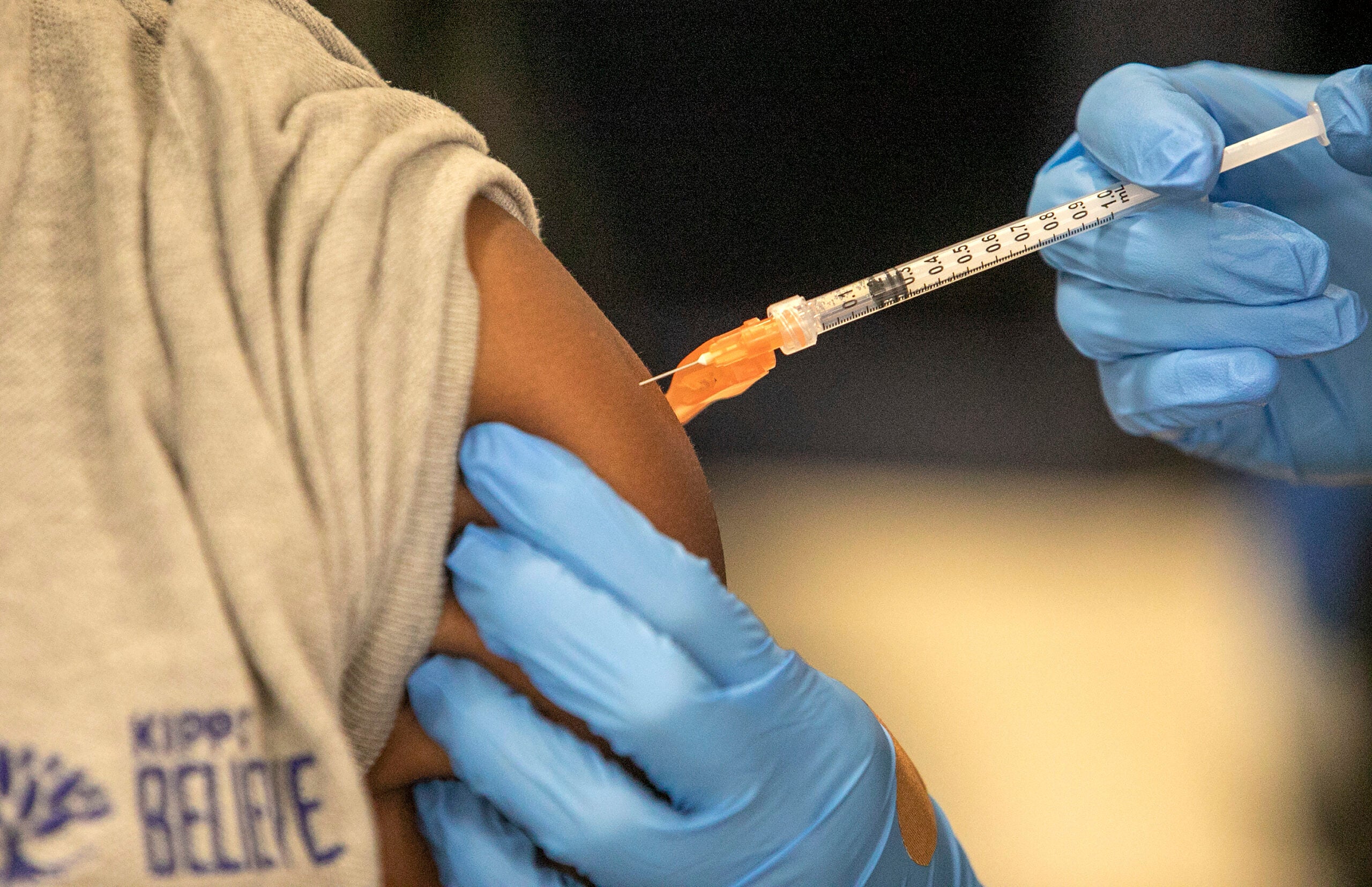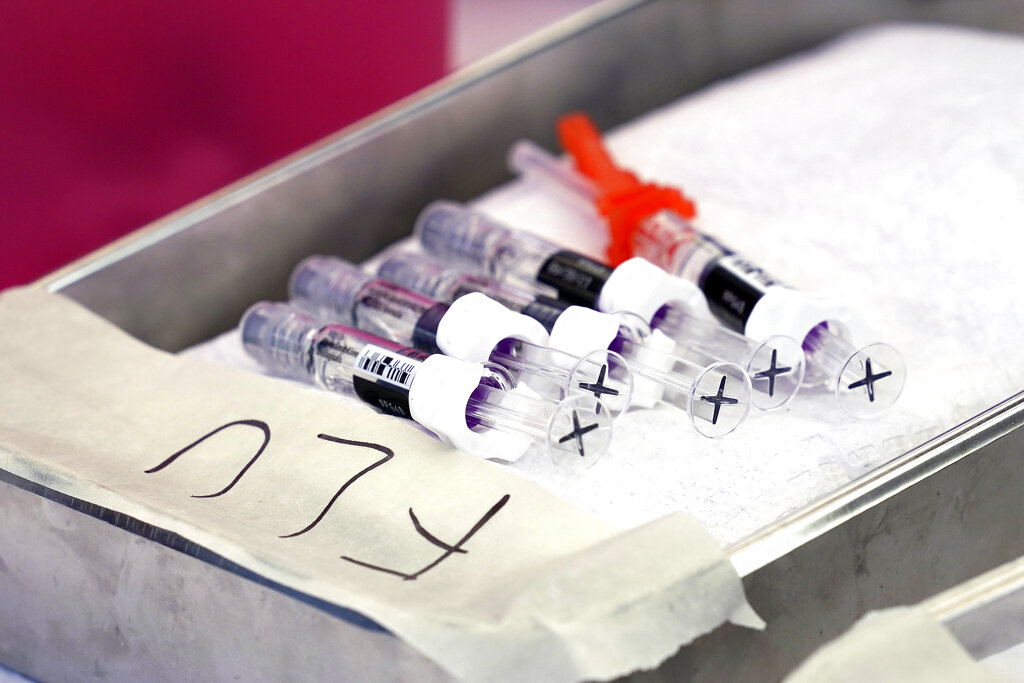State health officials will connect schools to labs that can do on site COVID-19 testing in the upcoming 2021-2022 school year, the Wisconsin Department of Health Services announced Tuesday.
Testing will be available to teachers, staff, students and their families.
“Until COVID-19 vaccines are available to students of all ages, testing remains one of our best tools to help reduce the spread of COVID-19 in our schools,” said Gov. Tony Evers in a statement. “This testing program supports schools so our educators and staff can focus on what they do best — teaching our kids.”
Stay informed on the latest news
Sign up for WPR’s email newsletter.
Currently, only those 12 years and older are approved by the federal government to get vaccinated against COVID-19. Clinical trials are underway to test vaccines in younger children and may not be available until later this year or early next year.
State data shows that 26 percent of 12-17 year olds have had at least one dose of COVID-19 vaccine. Percentages are higher for older teens. The overall statewide vaccination rate is on par with the nation’s but pockets of unvaccinated people in the state and across the country make continued COVID-19 testing important, so health officials can track the disease.
“We look forward to younger age groups catching up to their parents and grandparents in terms of vaccination rates. This is even more important with the rapid spread of the delta variant,” DHS Deputy Secretary Julie Willems Van Dijk said during a briefing Tuesday.
The delta variant has ravaged India where it quickly became the dominant strain. In Wisconsin there are only 35 cases of COVID-19 associated with the variant, but that number could grow as the delta version is more contagious than the original virus or other variants.
The Centers for Disease Control and Prevention recommends COVID-19 testing in schools be done to diagnose those with a cough or fever, after big events like sporting competitions, and as a screening tool in communities where the disease is prevalent.
The COVID-19 testing program in schools will use both antigen tests and also polymerase chain reaction, or PCR, tests. The former is quicker but less reliable. The latter detects genetic material in a virus and needs to be processed by a lab.
Most respiratory viruses are seasonal, meaning colds and COVID-19 could increase as the weather gets colder and spread more easily as people are grouped together inside.
“We essentially have a swarm of respiratory viruses and there’s a risk of COVID-19 coming back and surging in the fall, it’s going to be critically important that anytime someone develops symptoms of a cold or flu that we test them,” said DHS Chief Medical Officer Dr. Ryan Westergaard.
Participation in the school testing program is voluntary and the testing services are free of charge.
Wisconsin Public Radio, © Copyright 2024, Board of Regents of the University of Wisconsin System and Wisconsin Educational Communications Board.

